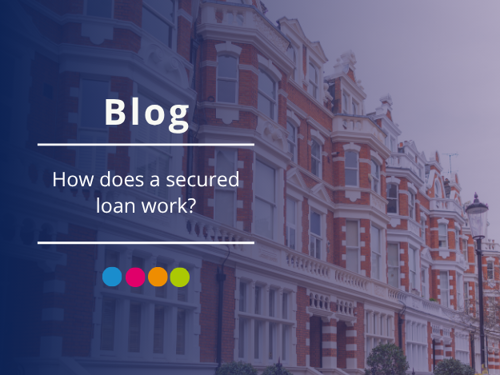
If you're considering taking out a secured loan, it's natural to wonder how it works and how it compares to something more familiar, like a regular mortgage.
In this blog, we'll break it down clearly, so you can understand whether it might be the right solution for your needs.
How does a secured personal loan work?
A secured loan, sometimes called a second charge mortgage or homeowner loan, is a type of borrowing option that uses your home as security. This means it uses the value of your property as security, giving the lender reassurance in case repayments aren’t made.
When you get this type of loan, it doesn’t replace your main mortgage, it sits alongside it. Your first mortgage is registered as the “first charge” on your property. The secured loan is registered as the “second charge,” which is why you might hear it called that.
If the worst happened and your property was repossessed, your first mortgage provider would be paid back first from the sale of the property. The second charge lender would only be repaid after that.
How repayments work
When it comes to repayments, these work in a very similar way to a standard mortgage. You’ll have an agreed interest rate, and you’ll make monthly payments over a set term until the loan is fully repaid. It’s worth keeping in mind that these payments will be in addition to whatever you’re already paying on your main mortgage, so it’s important to make sure both payments fit comfortably within your budget.
Once the loan is fully paid off, the charge is removed from your property, and you’ll no longer have any repayments linked to that loan.
When might someone choose a secured loan?
They're often used when people need to borrow larger amounts of money, whether that’s for home improvements, consolidating debts, or covering big expenses. They can sometimes be a good option if:
- You’ve already borrowed as much as you can from your first mortgage lender and can’t get a further advance.
- Remortgaging wouldn’t make sense because you’re on a great rate or you would face high early repayment charges.
- Your credit score means you can’t access an unsecured loan with the amount or terms you’re looking for.
Before making any decisions, it’s always good to speak to a qualified advisor to see if this type of loan is a suitable fit for your circumstances.
Summary
In summary, secured loans can be a useful way to access additional funds, especially if you’re looking to borrow a larger amount and other options aren’t quite right for you. It works alongside your existing mortgage, with its own interest rate and repayment plan, and is secured against your home in the same way your first mortgage is.
If you’re unsure whether this is the right option for you, speaking with an experienced advisor can help you weigh up your choices and make an informed decision that suits your personal situation.
Loans are secured against property. Think carefully before securing other debts against your home. Your home may be repossessed if you do not keep up repayments on a mortgage or any other debt secured on it.




